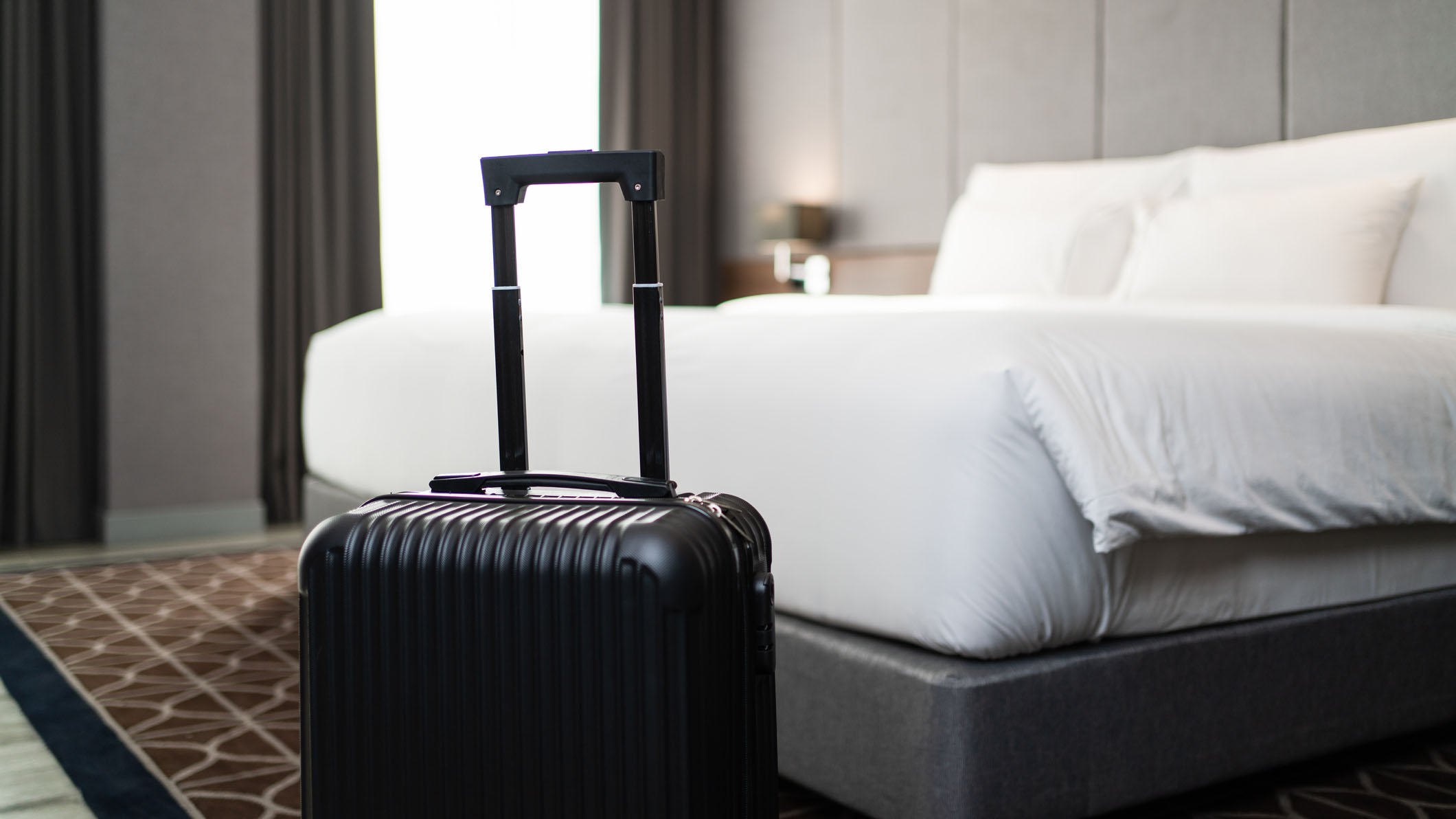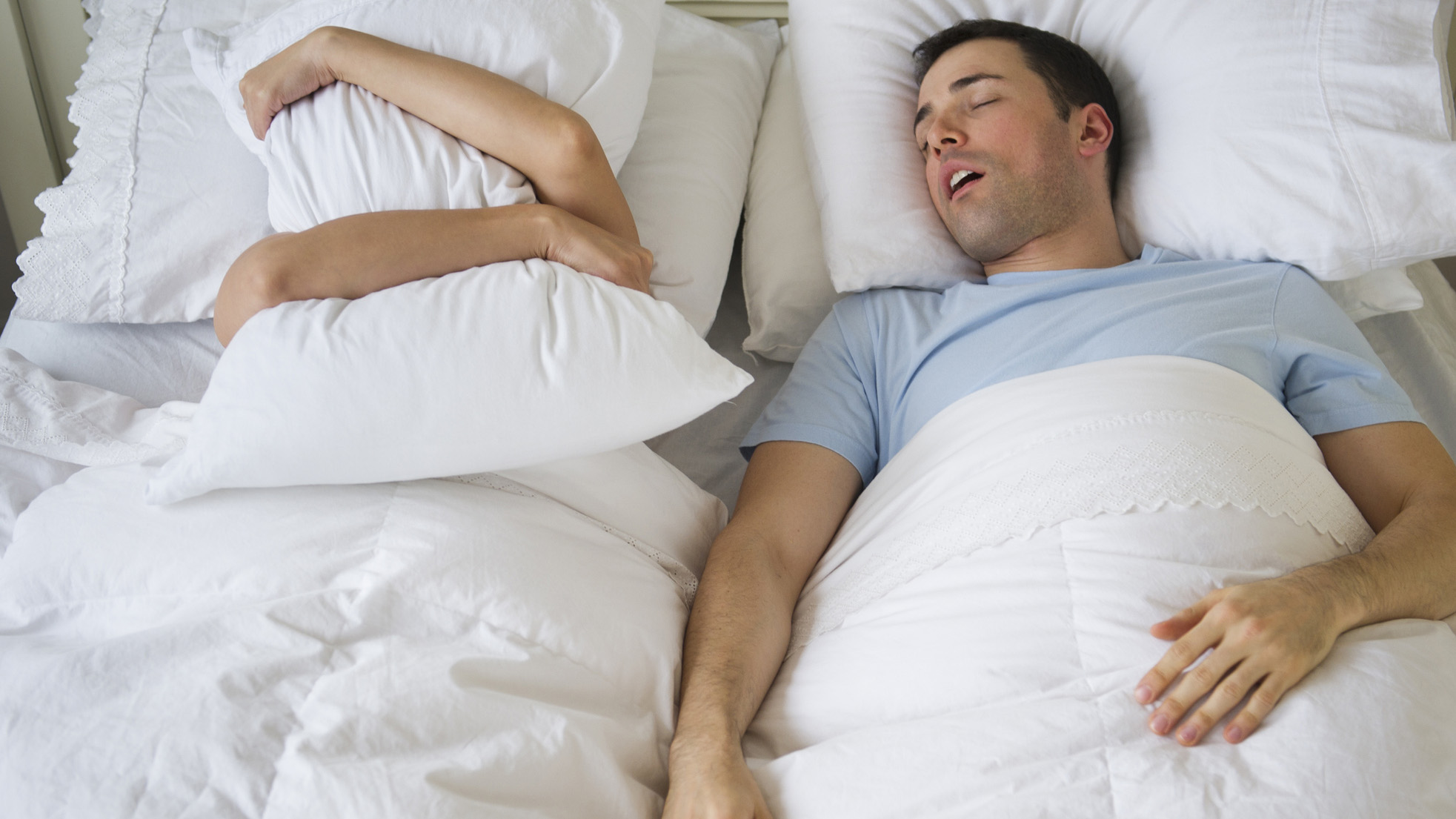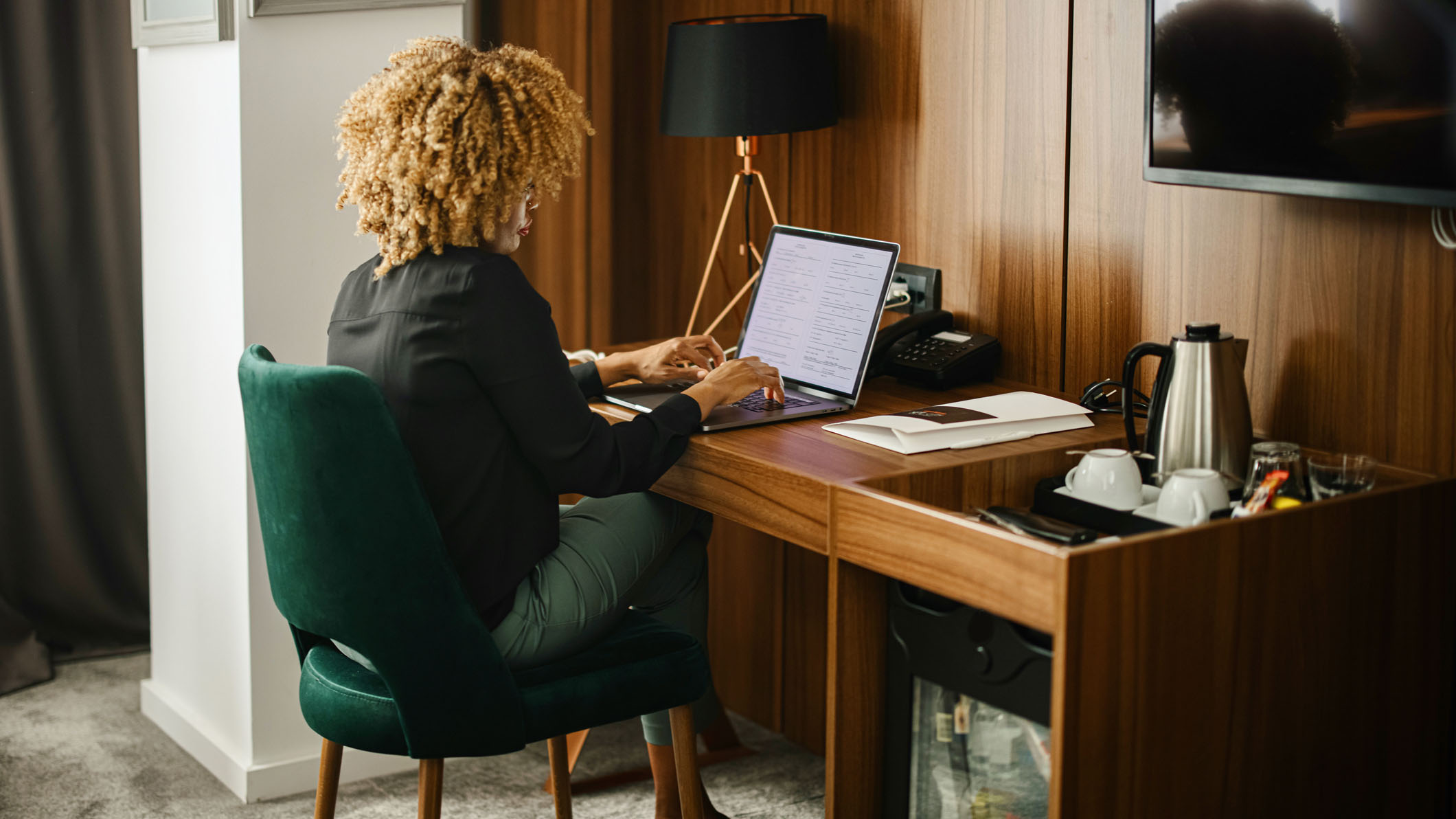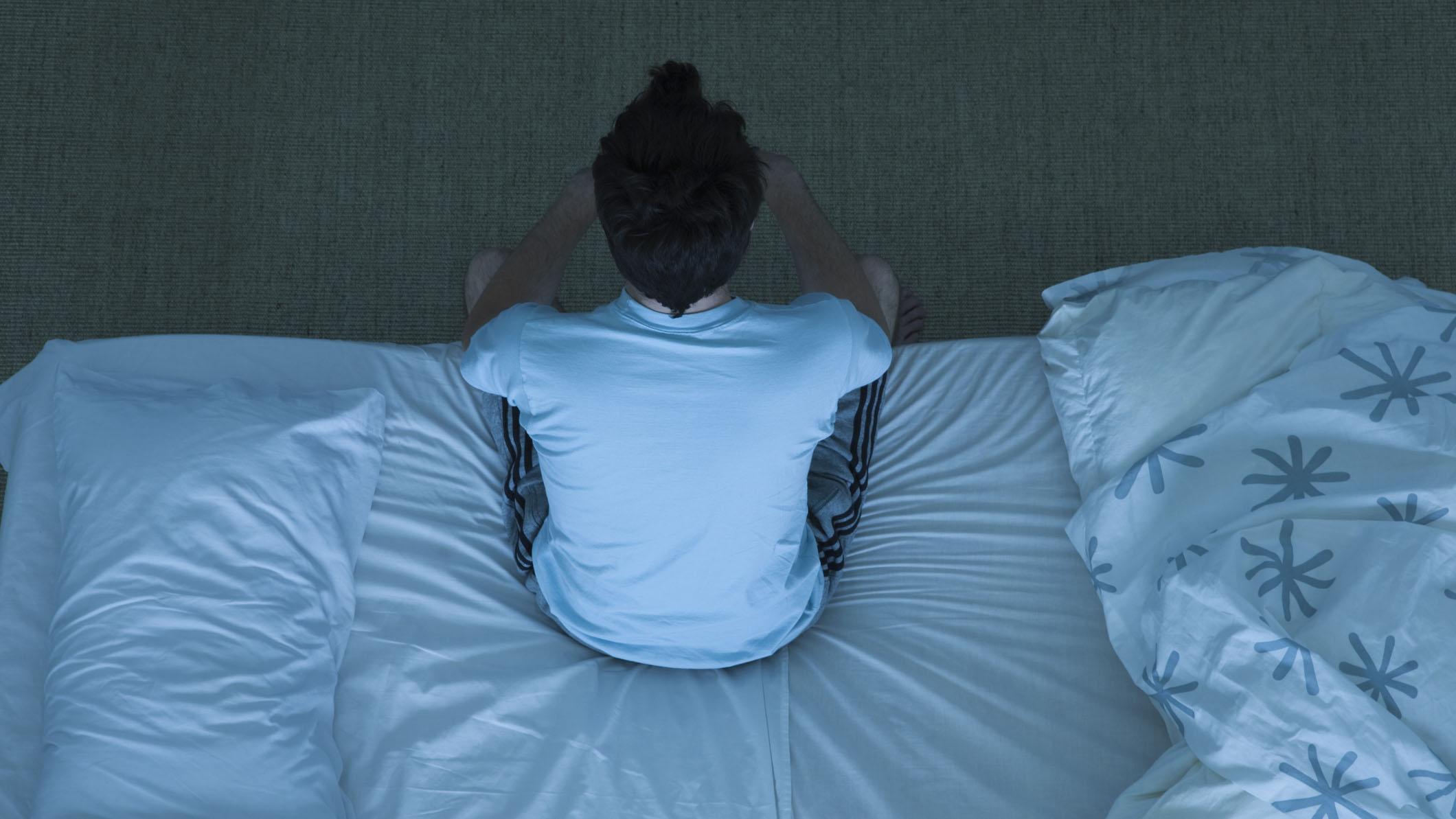How to sleep better at a hotel if you're away from home this Christmas
9 tips for sleeping better during your hotel stay, including what sleep products to pack

Here at Tom’s Guide our expert editors are committed to bringing you the best news, reviews and guides to help you stay informed and ahead of the curve!
You are now subscribed
Your newsletter sign-up was successful
Want to add more newsletters?

Daily (Mon-Sun)
Tom's Guide Daily
Sign up to get the latest updates on all of your favorite content! From cutting-edge tech news and the hottest streaming buzz to unbeatable deals on the best products and in-depth reviews, we’ve got you covered.

Weekly on Thursday
Tom's AI Guide
Be AI savvy with your weekly newsletter summing up all the biggest AI news you need to know. Plus, analysis from our AI editor and tips on how to use the latest AI tools!

Weekly on Friday
Tom's iGuide
Unlock the vast world of Apple news straight to your inbox. With coverage on everything from exciting product launches to essential software updates, this is your go-to source for the latest updates on all the best Apple content.

Weekly on Monday
Tom's Streaming Guide
Our weekly newsletter is expertly crafted to immerse you in the world of streaming. Stay updated on the latest releases and our top recommendations across your favorite streaming platforms.
Join the club
Get full access to premium articles, exclusive features and a growing list of member rewards.
If you're spending Christmas in a hotel this year, you may be wondering how to get a good night's sleep if you're not in your own bed and in your normal routine. We can help, as here we've rounded up our nine top tips for how to sleep at a hotel, including what products you should pack to help you overcome any sleep issues at the hotel.
While you (sadly) can’t cram one of our best mattresses into your suitcase, there are plenty of travel friendly sleep products that will fit into your luggage. From avoiding the temptation of revenge bedtime procrastination to how to set your room's AC to the best temperature for sleep, here's how to sleep better at a hotel so that you can feel rested and energized this Christmas.
How to sleep at a hotel: Tips and products
1. Choose a room on the highest floor
While a lot of hotels are close to being fully booked around the holidays, if possible, try to book a hotel room on the highest (or one of the higher floors). The likelihood is that a room on the highest floor will be far away from noisy hotel bars and conference rooms, so any late-night Christmas party music shouldn't filter all the way up to your room and keep you awake. After all, the last thing you want to hear is Bridget Jones-style Christmas karaoke when you’re trying to get some shut-eye.
2. Use white noise
If you’re unable to book a room away from the bar or you’re staying at a hotel in the middle of a noisy city, you need a way to block out or mask external noise that will otherwise stop you from falling asleep easily.
We recommend using white noise, brown noise, or green noise for sleep. These sounds are effective at reducing the impact of external noise and they're relaxing too – a good space to be in if you want to fall asleep fast. You can find lots of white noise soundtracks on Spotify, or if you don't want to be reliant on hotel Wi-Fi, consider taking a portable white noise machine such as the Magicteam Sound Machine from Amazon.

3. Pack earplugs or sleep earbuds
If a white noise machine isn’t for you, you can always try using sleep earplugs or noise-cancelling sleep earbuds. Noise-cancelling earbuds are a great way to not only drown out any city noise pollution, loud hotel neighbours, or even a snoring travel companion. We recommend QuietOn 3.1 Sleep Earbuds, which come in four different sizes and are even suitable for those who sleep on their side.
4. No blackout blinds? Use an eye mask
This travel essential is simple, cost-effective and likely already in your luggage. While a lot of hotel rooms have blackout blinds to block out any light pollution, some don’t provide them. A simple way to block out any sleep-disrupting glare is to wear a sleep mask. Sleep masks come in all sizes and materials, with some being adjustable to fit all heads.
Get instant access to breaking news, the hottest reviews, great deals and helpful tips.
5. Set the AC to the best temperature for sleep
Creating the right sleep environment is key to a good night, and room temperature plays an important role in creating that relaxing atmosphere. According to experts, the best temperature for sleeping is between 20 and 25 °C (68 and 77 °F). If your hotel room has AC that you can adjust, make sure you set it to the perfect temperature for sleeping around an hour before you want to fall asleep.
6. Follow your usual sleep/rise routine
While you may be in vacation mode as soon as you set foot in your hotel room and the temptation to indulge in some revenge bedtime procrastination is high, we'd urge you to forgo any late nights or lie-ins for the sake of your sleep health.
Instead, try to set your alarm for the same time as you normally would back home and go to bed early so that you can wake up feeling refreshed. Getting up at the same time each day is one of the basic principles of good sleep hygiene and sticking with it will help you fall asleep faster at night in your hotel room and back at home.

7. Avoid the hotel boffice (don’t work from bed)
While some may have time off to enjoy the holidays, if you’re still working or on a business trip, you may be tempted to get some work done from your hotel bed (i.e. your “boffice”). However, working from bed is not conducive to good sleep hygiene, and the blue light from your laptop may disrupt your circadian rhythm. So try to avoid working from bed by finishing up any work at least one hour before bed and working from a desk or dressing table.
8. Don’t indulge close to bedtime
While you may be tempted to hit your room’s mini bar or take advantage of the restaurant’s all-you-can-eat buffet, try not to overdo it so close to bedtime. Eating heavy meals or sugary snacks and drinking alcohol or caffeine before bed can make it harder for you to nod off.
Instead follow the 10-3-2-1-0 sleep rule: stop drinking caffeine 10 hours before bed, stop drinking and eating three hours before bed, stop working two hours before bed, and cut out screen time one hour before bed (so that you don't hit the snooze button in the morning).
9. Relax in the hot tub but avoid steam rooms at night
If your hotel has a hot tub, then feel free to hop in as this can be a great way to unwind. However, it’s best to avoid any steam rooms close to bed. The steam can dehydrate you, causing you to drink more. Drinking so close to bed means you're likely to make multiple visits to the bathroom, which can lead to disturbed sleep at night and you feeling tired and cranky the next day.
Why do some people find it hard to sleep at a hotel?
When sleeping in a new environment, such as a hotel, people tend to suffer from what’s known as ‘the first night effect’. As certified paediatric and adult sleep consultant Kelly Murray explained to Tom’s Guide earlier this year, the first night effect when we find it difficult to sleep in unfamiliar places.

This phenomenon is an in-built survival mechanism caused by the brain's evolutionary response to a new sleep space, which wants us to remain vigilant when in a strange place due to potential dangers. When our brains want us to be awake and alert, then we’re going to struggle to fall asleep.
What if you don’t like your hotel mattress?
While our tips on how to sleep at a hotel cover what habits to avoid before bedtime and how to block out noise and light, sometimes what’s preventing you from a good night's sleep is the bed you’re lying on. If you’re used to sleeping on a firm mattress at home, then a plush hotel bed may feel too soft. Likewise, if you sleep on a soft, plush bed, some hotel mattresses can feel like sleeping on a rock.
Luckily, there are a few tricks to make your mattress more comfortable. If your bed is too firm, this could be due to a cold temperature, so try turning off the AC to warm the bed up. If your bed is too soft or saggy, adding pillows under certain body parts (such as hips and legs) will add support that the sagging mattress can no longer provide.
If you’re a stomach, back, or heavyweight sleeper, it’s extra important to support your hips. Sagging can make your hips sink or dip into the mattress, which will misalign your spine and cause lower back pain. Our feature on what mattresses do hotels use gives you a full list of the beds you'll find at every major hotel, so you can be better prepared.

Frances Daniels is a PPA-accredited journalist and Sleep Staff Writer at Tom's Guide with an MA in Magazine Journalism from Cardiff University. Her role includes covering mattress and sleep news and writing sleep product reviews and buyer's guides, including our Best Hybrid Mattress 2025 guide. She is interested in the relationship between sleep and health, interviewing an array of experts to create in-depth articles about topics such as nutrition, sleep disorders, sleep hygiene, and mattress care. She is also our specialist on mattress toppers — producing bed topper reviews and taking care of our Best Mattress Toppers 2025 guide — and leads content relating to fiberglass-free beds for a non-toxic sleep. Outside of Tom's Guide, she has written for Ideal Home and Marie Claire.
 Club Benefits
Club Benefits










